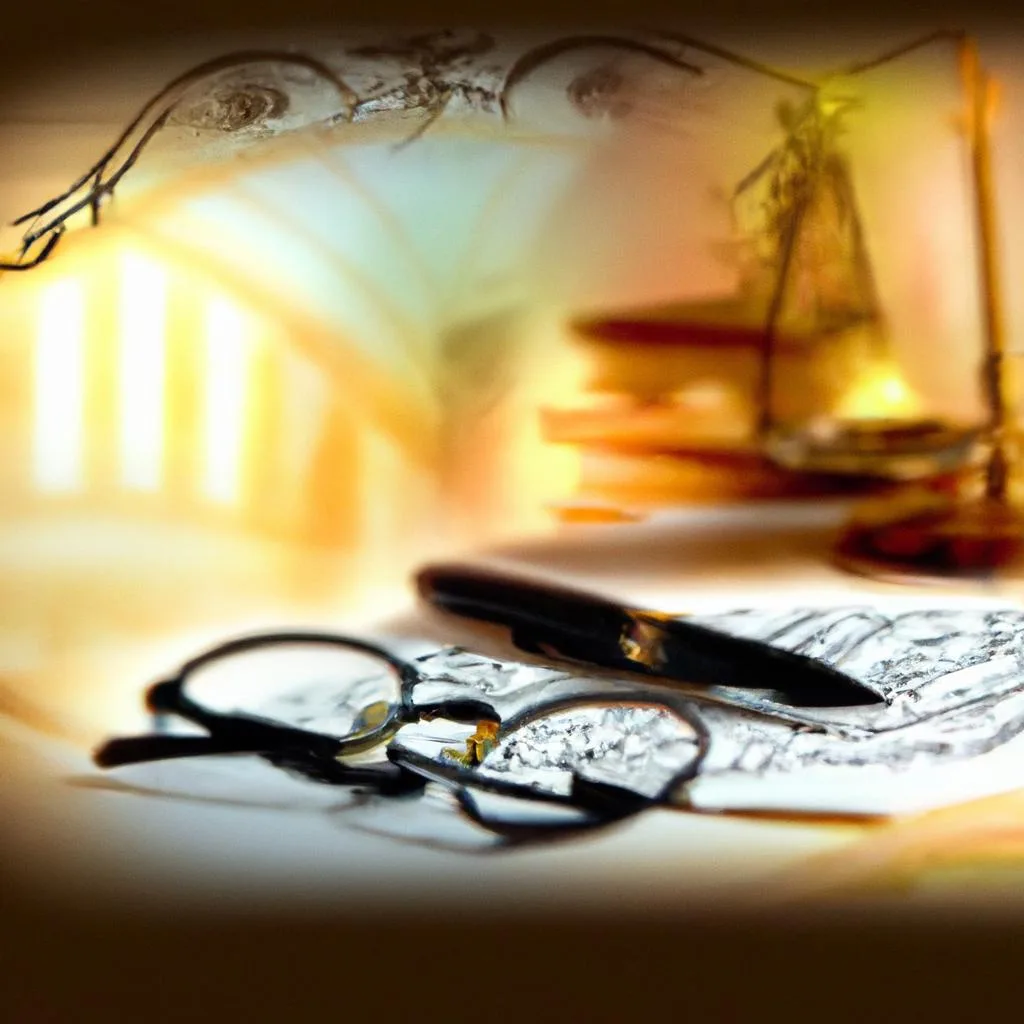During the process of probate, a common question arises: can the debts of the deceased be paid from their estate? This is a crucial yet complex issue in the legal proceedings surrounding an individual’s passing. With our extensive experience in estate planning and probate matters, the Morgan Legal Group is a trusted source for navigating this intricate terrain. In this article, we will delve into the mechanisms by which a deceased person’s debts may be addressed from their estate, providing clarity and expertise.
Understanding the Relationship Between Debts and Estate During Probate
One of the primary responsibilities of the executor during probate is to pay off the deceased person’s debts from their estate before distributing any assets to beneficiaries. This means that creditors have the right to make a claim against the estate in order to satisfy any outstanding debts. It is crucial for the executor to carefully review all debts and expenses, prioritize their payment, and ensure that all legal requirements are met.
It is important to note that not all debts are required to be paid from the estate during probate. Some debts may be discharged if they are considered uncollectible or if they are not properly documented. Working with an experienced probate attorney can help navigate the complex process of debt repayment during probate and ensure that the deceased person’s wishes are carried out in accordance with the law.
Examining the Priority of Debt Repayment from the Estate
When a person passes away, their debts do not simply disappear. The priority of debt repayment from the estate during probate is a critical aspect that must be carefully examined. It is essential to understand the order in which debts are paid to ensure that the deceased person’s affairs are handled effectively.
During the probate process, debts are typically paid in the following order:
- Funeral Expenses: These are typically the first debts to be paid.
- Administrative Expenses: Costs associated with handling the estate.
- Secured Debts: Debts secured by property.
| Debt Type | Payment Priority |
|---|---|
| Funeral Expenses | First |
| Administrative Expenses | Second |
| Secured Debts | Third |
Navigating Complex Legal Issues Surrounding Debt Settlement in Probate
When a loved one passes away, their debts do not disappear – they become the responsibility of their estate during the probate process. Navigating the complex legal issues surrounding debt settlement in probate can be challenging, but it is crucial to understand the process to ensure that the deceased person’s assets are distributed properly.
During probate, the deceased person’s debts are typically paid from their estate before any assets are distributed to beneficiaries. However, there are certain factors to consider when settling debts, such as:
- Whether the estate has enough assets to cover the debts
- Identifying and prioritizing creditors
- Understanding state laws regarding debt settlement in probate
Key Strategies for Managing and Settling Debts of the Deceased in Probate
When a person passes away, their debts do not automatically disappear. Instead, the debts are typically settled from the deceased person’s estate during the probate process. Prob
 When a loved one passes away, one of the most pressing questions for their family and friends is what will happen to their estate, including any debts they may owe. This can be a stressful and confusing time, especially for those who are not familiar with the legal processes involved. One common question is whether the deceased person’s debts can be paid from their estate during probate. The short answer is yes, but it’s important to understand the details and what steps need to be taken to ensure that debts are properly handled. In this article, we will explore the issue of paying the deceased person’s debts from their estate during probate, including important information on what happens if there are not enough assets to cover the debts.
When a loved one passes away, one of the most pressing questions for their family and friends is what will happen to their estate, including any debts they may owe. This can be a stressful and confusing time, especially for those who are not familiar with the legal processes involved. One common question is whether the deceased person’s debts can be paid from their estate during probate. The short answer is yes, but it’s important to understand the details and what steps need to be taken to ensure that debts are properly handled. In this article, we will explore the issue of paying the deceased person’s debts from their estate during probate, including important information on what happens if there are not enough assets to cover the debts.
Understanding Probate and the Deceased Person’s Estate
Probate is the legal process of handling a deceased person’s estate. It involves validating their will (if there is one), identifying and inventorying their assets, paying any debts and taxes, and distributing the remaining assets to the beneficiaries. The person responsible for overseeing this process is the executor, who is typically chosen by the deceased person in their will. If there is no will, the court will appoint an administrator to handle the estate.
The estate includes all of the deceased person’s assets and property, such as real estate, bank accounts, investments, and personal belongings. It also includes any debts they owe at the time of their death.
Can Creditors Collect from the Deceased Person’s Estate?
The short answer is yes, but there are some important factors to consider. After a person dies, their creditors have a limited amount of time to make a claim against their estate. This time frame varies by state but is typically between three and nine months. During this time, the executor or administrator is responsible for notifying all known creditors of the death, providing them with the necessary information to make a claim, and evaluating and paying those claims.
If the executor or administrator fails to notify a known creditor, they may be personally liable for the amount owed. It’s important for the executor or administrator to be diligent in identifying and notifying all known creditors to avoid this risk.
What Happens if There are Not Enough Assets to Cover the Debts?
If the estate does not have enough assets to cover all of the debts, the debts will be paid in a specific order. Generally, secured debts, such as a mortgage, must be paid first. Unsecured debts, such as credit card debt, are paid second. And any leftover assets will then be distributed to the beneficiaries.
In some cases, creditors may be able to make a claim against specific assets, such as a car or a piece of property, to recoup the debt. This is known as “collateralized debt.” If there is not enough value in these assets to cover the debt, the executor or administrator may need to sell them to pay the creditor.
It’s important to note that in some states, certain assets, such as life insurance or retirement accounts with designated beneficiaries, are not considered part of the estate and cannot be used to pay debts. These assets are typically paid directly to the designated beneficiary.
What About Jointly Owned Property?
If the deceased person owned property jointly with someone else, such as a spouse or business partner, the other owner(s) may be responsible for the debt. For example, if a husband and wife jointly own a home, and the husband dies, the wife may be responsible for paying the mortgage. In this case, the mortgage would not be paid from the husband’s estate.
Can Family Members Be Held Responsible for Debts?
In most cases, family members or beneficiaries are not responsible for a deceased person’s debts. However, there are a few exceptions to this rule. If the deceased person’s name is also on the debt, such as a joint credit card or mortgage, the co-signer may still be responsible for the remaining balance. Additionally, if the family member or beneficiary received money or property from the deceased person before their death, the creditor may be able to make a claim against those assets. This is known as “ademption.”
Benefits and Practical Tips
As you can see, handling a deceased person’s debts during probate can be a complicated matter. To ensure a smooth process, here are some practical tips:
– As the executor or administrator, be sure to properly identify and notify all known creditors.
– Keep detailed records of all communications with creditors, including any payments made.
– Seek professional guidance from an estate planning attorney or financial advisor to accurately assess the estate’s assets and debts.
– When in doubt, consult with the court handling the probate process for guidance on how to handle any outstanding debts.
Case Study
To further illustrate the process of paying the deceased person’s debts from their estate, let’s look at an example. John recently passed away, leaving behind an estate valued at $500,000. He had a mortgage on his home with a remaining balance of $200,000, $20,000 in credit card debt, and $5,000 in medical bills. After notifying all known creditors and assessing the estate’s assets, John’s executor paid the mortgage, credit card debt, and medical bills, leaving $275,000 to be distributed to his beneficiaries.
First-Hand Experience
Dealing with a loved one’s passing is never easy, and handling their debts during probate can add an extra layer of stress. If you find yourself in this situation, remember to take your time and seek professional guidance when needed. By following the proper procedures and staying organized, you can ensure that the deceased person’s debts are handled correctly, allowing their assets to be distributed to their beneficiaries as they intended.
In conclusion, it is possible for a deceased person’s debts to be paid from their estate during probate. The executor or administrator must take the necessary steps to identify and notify creditors and pay any valid claims from the estate’s assets. If there are not enough assets to cover the debts, they will be paid in a specific order, and the remaining assets will be distributed to the beneficiaries. It’s important to seek professional guidance and stay organized during this process to ensure a smooth probate experience.

